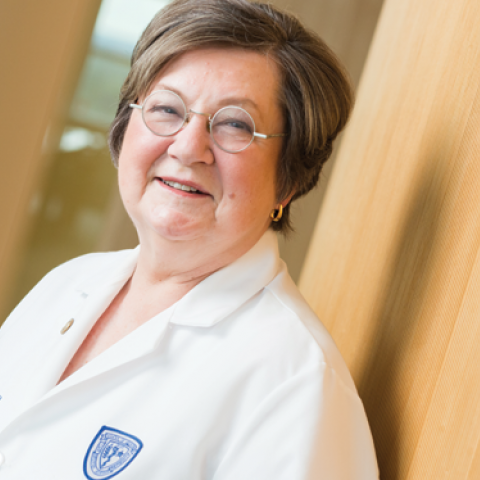Our new medical students arrive in a few short weeks and our graduate students will start at various times throughout the summer. All our students possess the intellectual capability to succeed. What we provide is a challenging curriculum to train their minds. But equally important is what we impart to them about being professional clinicians or scientists. It’s up to us to model the integrity, grit, concern for others, and dedication to improving the world that make us the professionals that we are. Preaching about it won’t cut it. We have to live it every day.
For our medical students, their first official week concludes with a professionalism workshop and the creation of an oath of professionalism written exclusively by and for that class. Every week thereafter they attend a course on how to effectively communicate when patient contact gets too close and sometimes uncomfortable. For our graduate students, a required course in scientific integrity and reproducibility of data emphasizes the importance of always presenting data in an unvarnished and truthful fashion, and the potential pitfalls in data processing and interpretation.
As important as these sessions are, how we as faculty conduct ourselves has significantly more influence on our students’ behavior. Central is the need to communicate and model the importance of treating one’s colleagues, students, patients, and mentors with the highest respect. When disagreement occurs, as it inevitably will, we must teach our students to disagree gracefully, always seeking the best outcome, the best data, and the best result from each encounter.
Recently some of the faculty have wondered whether it is enough to carry with us these unspoken expectations by which, we hopefully, live by day to day. They asked whether there should be written standards of professional behavior for medical school faculty and a professionalism council to accompany this standard, which could promote and reward professional behaviors of the highest integrity. For example, we already reward residents who model excellent professionalism in the Student Clinician Rising Ceremony when our students enter their clinical rotations.
Whether to implement such a code of conduct and establish a professionalism council are matters that should be taken up by faculty. I hope that our Faculty Council will constitute an ad hoc committee to consider the question. It is critical that we exemplify professional behavior for our students, and steps such as these would greatly add to our efforts.
Whatever formal mechanisms by which we establish a high standard of professionalism, I know you will welcome our new students with warmth and high expectations – and I don’t believe we will be disappointed if we model those same expectations ourselves.
Pam


